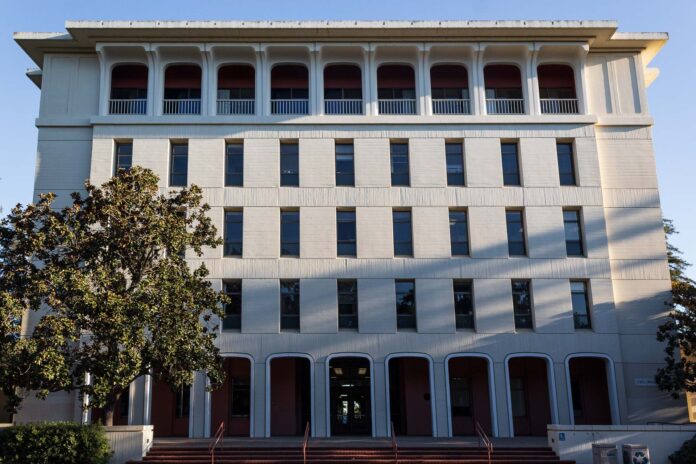Department of Education reveals new Title IX regulations
New Title IX regulations regarding sexual harassment and assualt were revealed on Wednesday, May 6 by the Department of Education, led by Education Secretary Betsy Devos.
These new guidelines — which will take effect Aug. 14 — were finalized after a lengthy review process initiated in 2018. Under the new rules, students accused of sexual misconduct will have full access to the evidence used against them and will be presumed innocent throughout the disciplinary process.
In response to the new rules, the UC Office of the President (UCOP) issued a statement describing the Trump administration’s new sexual assault and harassment guidelines as “misguided,” adding that the efforts of the Department of Education to implement such measures amounted to a “reversal of hard-fought social and policy gains.”
“Imposing these new rules in the midst of the COVID-19 pandemic when students and staff are already anxious, and providing a tight timeline for compliance when schools have limited ability to meet with community members to discuss these changes, adds to the challenges,” the statement said.
Though UCOP added that it approved of including relationship violence as a factor in the guidelines, it also said the Department of Education had disregarded much of the feedback from “students, educators, Title IX professionals and institutions across the nation” who raised concerns about other regulations.
In particular, objections have been raised about the practice of allowing the accused to cross-examine those accusing them, and vice versa. The guidelines also narrow the definition of sexual harassment, such that a claim is only legitimate if the actions taken by the perpetrator are deemed “severe, pervasive, and objectively offensive.” Schools will also have the choice between two evidentiary standards, either through the preponderance of the evidence standard, which the UC currently operates under, or the more stringent, clear and convincing evidence standard.
UC Davis has taken a similarly critical stance regarding the Department of Education’s decision.
“These rules narrow the definition of sexual harassment and lower the standards to which the federal government holds schools,” said Chancellor Gary May in a statement. “These changes are a big step backwards and I am concerned they might discourage survivors from coming forward in the future. I join University of California President Janet Napolitano in expressing my deep disappointment with the Department of Education’s action.”
The ASUCD Gender and Sexuality Commission (GASC) has also taken a stand against the regulations.
“The changes made by […] DeVos are linked to an essentialist or evidentiary based legal system that censors and diverts survivors from sharing their truth,” Elena DeNecochea, the GASC chair, said via email. “DeVos is in many ways saying that if you can’t prove you were assaulted (by evidence) then it never happened. We know this is not true for survivors. We are aware that sexual assault is more complex than our legal system is willing to confront.”
According to DeNecochea, GASC is currently working with the External Affairs Commission to expand Title IX protections on campus to prevent sexual assault. She also noted that Title IX has the potential to be helpful rather than “criminalizing and promoting systems of punishment,” and described the Department of Education’s new regulation as “dismantling protections designed for survivors.”
UC Davis is still in the process of reviewing the new regulations.
“At UC Davis, we are reviewing the new regulations and will work with the UC system to determine how they may be implemented,” said Wendi Delmendo, the chief compliance officer and Title IX officer for UC Davis, and Sarah Meredith, the director of the Center for Advocacy, Resources and Education, via email. “Nothing in the new regulations changes the support we continue to offer to survivors of sexual violence or sexual harassment.”
Written by: Rebecca Bihn-Wallace — campus@theaggie.org










“Under the new rules, students accused of sexual misconduct will have full access to the evidence used against them and will be presumed innocent throughout the disciplinary process.”
The horror!
“or the more stringent, clear and convincing evidence standard.”
Standards?! What do you think this is, a fair trial?